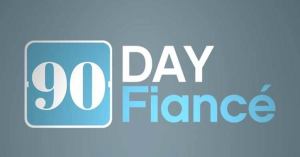A second stimulus check is now all but guaranteed to be included in the next stimulus package, but how much can you expect to receive under this second round of direct payments? Although details of what could be the final relief package have been few and far between — with most information almost entirely speculation — as Congress reconvened on Capitol Hill this week to begin negotiations, more concrete statements arose. Among those statements was one including the likelihood that the wording of the bill, when it pertains to stimulus payments, will be all but identical to the wording in the CARES Act.
That much was confirmed Thursday by Treasury Secretary Steven Mnuchin. Speaking to reporters on the very day the legislation was set to be unveiled by Senate Republicans – it has since been delayed until “early next week” – Mnuchin said, “we’re talking about the same provision as last time, so our proposal is the exact same proposal as last time.” This means that most Americans can expect to receive a $1,200 stimulus check or a $2,400 for joint filers.
Videos by PopCulture.com
Using this information, it’s relatively easy to determine how much money you can expect to receive under the new legislation, should it pass both bodies of Congress and earn a signature from President Donald Trump. However, for those wishing for an easier route, or simply not wishing to dig back in stimulus check-related news to find the eligibility requirements of the CARES Act, which was passed in late March, a tool created by the Omni Calculator Project allows Americans to see just how much they would receive under the CARES Act, which means it will also likely reveal the amount of the second stimulus payment proposed under the GOP’s legislation.
Accessed by clicking here, the calculator is easy to use. Users simply need to put in the requested information, which includes your filing status, how many dependents you have, and your adjusted gross income (AGI). The calculator will then give you an approximation of what you would receive in the scenario the bill passes.
Of course, this amount should not be taken completely as truth, as Senate Republicans have not yet unveiled their proposal, which means there is plenty of time for details of the bill to change, including the eligibility requirements of the second stimulus check. While that particular detail remains a little murky, there is one thing that is all but proven: Congress, as well as the president, wishes to see payments distributed as soon as possible. If the legislation manages to be negotiated among Republicans and Democrats and passes in both the House and Senate by Aug. 7, after which Congress enters another recess, it is likely that payments could be distributed later in August.








